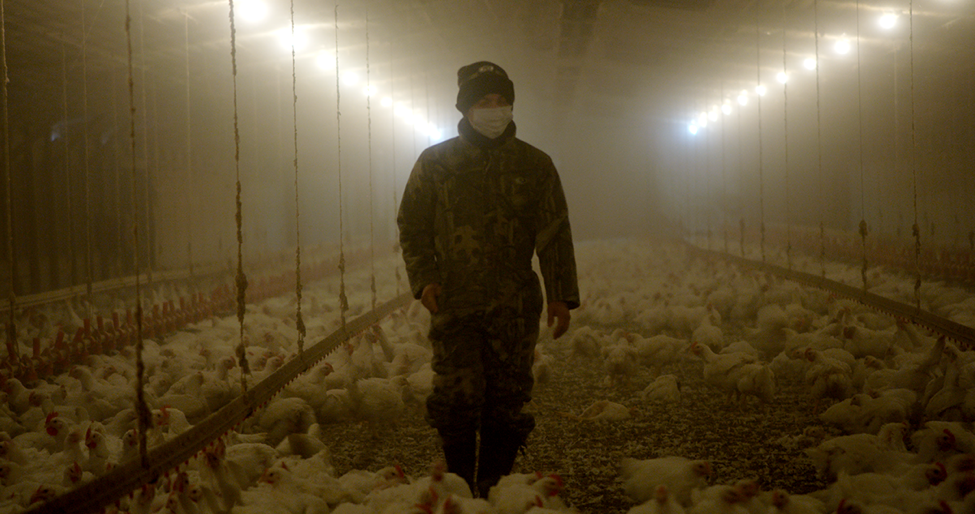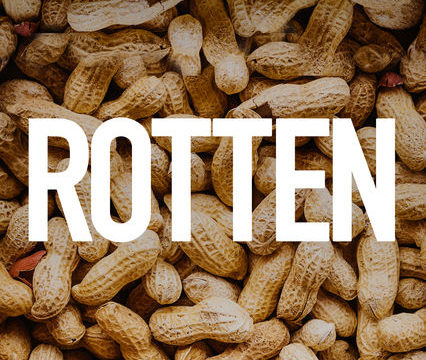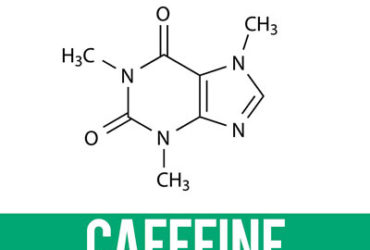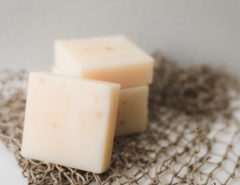BY: MACKENZIE HANNUM

https://ewedit.files.wordpress.com/2017/12/rotten_vertical-main_pre_us.jpg
As some of you may already know, in January, Netflix released a new 6-part documentary centered on the food industry. The official description of “Rotten” is as follows:
“Local farming is fading as profit margins decide what food makes it to our plates. The new Netflix documentary series Rotten exposes the fraud, corruption, and the consequences on our health of today’s global food industry. Nobody’s hands are clean.” (Watch the trailer here)
Nobody’s hands are clean…eerie….and also ew? Right? Or is that just me?
The marketing impact of those three sentences are powerful and carry a lot of weight. It is not casual by any means, and if I wasn’t currently working in the industry and I came across this, frankly, I would be very scared. They’re making some major blanket claims about the industry as a whole…not just the industry in the United States but they say even the whole global food industry is corrupt and fraudulent.
As a consumer…I am thinking to myself, “Well crap… what do I eat now?”
As a food scientist…I am thinking to myself, “Well this is interesting…” And I channel my inner Nancy Drew to do some investigating on my own and see what this show is really all about.

https://www.goodreads.com/book/show/32979.The_Secret_of_the_Old_Clock
https://occ-0-2433-448.1.nflxso.net/art/7ebe1/b3b53e811f6d7e28b7ea7c065d8c2a3c89a7ebe1.png
Other than scaring people, what exactly is Rotten all about?
Rotten is a series, with each roughly one-hour episode delving into a different “true crime” in the food industry, ranging from adulteration of honey to prisoners in China peeling garlic, to even the rising occurrence of peanut allergies. The crimes are all over the place! But take a wild guess at the main commonality amongst all of these issues…You guessed it! It’s the global food industries fault.
Before writing this post, I wanted to see what exactly they were claiming and investigate how exactly they went about telling their story. Because frankly, facts aside, how they tell the story is what people will remember. They won’t remember the exact lawsuit that originated between the small-town farmers and the big garlic powerhouses from China. They won’t remember that there is a lab in the United States full of researchers whose life goal is to measure and test for adulteration in honey. What they will remember after watching these documentaries is how they felt. And based off of what I saw in the Honey, Peanut, and Garlic episodes is that they will have felt fear…
Woven within each of the episodes is the reoccurring theme of someone, somewhere who is connected to the food industry and is money-hungry. The added layer of dramatic effect intensifies these stories as the documentary interviews the farmers, consumers, industry representatives all affected by this issue. For example, the narrator compares dilution of honey to a ploy that “is straight out of the drug dealers’ playbook!” Honey. Drug Dealing. Logical conclusion there… Another time they compared those in the garlic business to running what resembles a cartel. These hyperbolic words are powerful. They will draw on strong emotions in the viewers and paint a very vivid picture of who is behind these food “controversies”. And let me tell you that it is not a pretty picture. Even their episode titles reassert the aggressive theme:
- Lawyers, Guns, and Honey
- The Peanut Problem
- Garlic Breath
- Big Bird
- Milk Money
- Cod is Dead

https://www.gannett-cdn.com/media/2018/01/03/USATODAY/USATODAY/636505792473607567-Rotten-S01E04-8m31s12275f.png
What people are saying:
On top of watching the documentary myself, I wanted to get a better understanding of how others were reacting to it. Just by glancing over the headlines below confirmed my experience of the fear-inducing nature of the documentary. However, I was surprised to find some similarity in our interpretations. People perceived Rotten to be fact-based, and for the most part, I agree. They do a good job interviewing as many sides to the story as they can. And I don’t doubt if I look up the specific instances they cite, I will find the evidence to back it up. We also agree on the fact that the documentary is dramatized at times as they spend too much time developing the personal story surrounding the incident of interest from those affected, rather than the greater public consequence that was experienced.

Where I begin to deviate is when they start to draw conclusions based off of the same facts that we (Rotten narrator, bloggers and myself) are all presented with. Here are some of those conclusions:
“The overarching takeaway from the series is that the business of food is sprawling, labyrinthine, and woefully corrupt, and that the consequences affect far more than what ends up on people’s plates.” –Sophie Gilbert, The Atlantic
“The show’s most important point: quite simply, the way we get our food is inherently f*&%&*” –Wil Fulton, Thrillist
“It’s not as much an assault on our diets as much as an eye-opening examination into the business of food production and the corporate and criminal malfeasance that is a part of the multibillion-dollar food industry” –Tom Roston, Salon
Since when does honey, peanuts, garlic, chicken, milk, and cod constitute our whole diet and our entire global food industry? I personally think I consume a little more than those six specific food categories on a regular basis. Frankly I probably only consume three of those on a weekly basis, if that. The point I am trying to make here is that as a scientist I struggle to generalize a singular finding TO THE GREATER POPULATION. So, it is hard for me to jump to the same conclusions that the makers of Rotten felt empowered to make. I feel like they take significant leaps to make their conclusions from the facts that were presented in the documentary. I agree that the people can become corrupt and make selfish decisions that can affect millions of consumers – and I recognize this has been seen in the food industry. But I do not agree with the notion that one corrupt person or company signifies corruption in the entire, global food industry. And that is why I find Rotten and similar documentaries frankly “rotten”…
Take Home Message
My take home message from this experience is the importance of investigating and educating yourselves on these hot topics before taking a stance. Food fraud and corruption is a large problem and has sparked the evolution of the evil entity colloquially known as “Big Food.” As both scientists and consumers, it is important to be familiar with these issues – to be presented with the facts from all sides and make your own personal decision accordingly. Be wary when people make jumping generalized conclusions from a small set of specific facts. Be wary when people add dramatic effects with music and photos that seem to be over the top for the topic being discussed. Also, be conscious of the choice of words people are using to communicate their narrative. But most important of all, remember to listen.
Listen to it all. Take it all in with as open of a mind as you can, and don’t allow your emotions to cloud your logical judgment. I’ll admit it was hard for me at times while watching Rotten. In the middle of an episode I would find myself aghast and shocked, wanting to yell at the TV. But, experience tells us the only way we can help fight these communication battles is by understanding where all sides are coming from and peacefully inserting ourselves into the conversation. Yes, the dramatic and emotional effect to the stories does have an impact and a purpose. So, the question now is – how can we tweak this strategy to benefit us on the side of science? How can we combat the fear that is being instilled in consumers each day? How can we utilize emotional and dramatic effect in a way that elicits trust and security rather than fear and war? If we can keep these questions in mind when faced with these hot topics slowly we can start to create a new dialogue.
Like what you read about Rotten? Follow us on Instagram and Facebook to keep plugged into the food science conversation!






Science Meets Food, thank you ever so for you post.Much thanks again.
I’m on episode 3 right now and I had to stop to see if anyone else out there thought this might be Trump propaganda. Seems like they are saying in each episode that China’s actions in free trade need to be stopped. Not trying to pick a political fight, I was just getting that vibe
Also, episode one states half way through (33:40) that the honey from Taiwan means the honey is of Chinese origin. These two places are one strait apart with different climates different regulations and different bees. How did this logic come about??? Tries too hard to fit China in probs?
Someone wasn’t paying attention. The issue here is that China was “selling” the product to those other countries, and then those countries would slap on their own labels and sell it as if it was their product. But as the show points out the amount of honey a place like Taiwan exports is something like a 1000x more than it could physically produce. So it was blatant evidence that it was not their natural product.
The only question I really had after seeing those episodes was; “WHY on earth are the Americans apparently completely incapable of peeling their own garlics? Everyone else in the world seem to be able to do just that.”
Jen, the reason is because it simply doesn’t make economic sense. As the show points out over 90% of the garlic in the worlds market comes from China. So even just looking at the US grown market it would cost a lot for equipment/labor to do so. Now looking at importing – for an example, if America imports a head of garlic for 50 cents, then has to peel it at a cost of 25 cents per head (not including initial capital costs to construct the plants), that is 75 cents per head. And if they sell it at $1 a head they make 25 cents per head – IF they can find a buyer at that price. Now take China – The cost for them to produce the head of garlic is probably less than a cent. And where it costed the US 25 cents per head to peal, China can peal it for probably pennies (or less if they actually are using slave labor) due to their abundance of cheap (poor) labor. So they are able to then turn around and export that peeled head of garlic for 75 cents to America. They make a killing and they are able to sell it cheaper than what the Americans could do. So everyone buys the cheap China peeled garlic and no one buys the “expensive” American peeled garlic.
For me Rotten has opened my eyes to how some food business is run. I think we all know of the big food companies and know how they make superior products and trusted brands. But what I like about Rotten is that it shows everything from start to finish. From the farmer who is making pennies a day to the final consumer. Science wise I don’t think the show is trying to instill fear on anyone – I didn’t get that at all. How many of us knew there was only a handful of companies (3 major) that basically controlled the chocolate industry?? And after seeing that episode we have a slight idea of why and how they do it. Is it evil? I don’t think so. They are doing what is within their legal rights. Is it unethical? That is up for debate but IMHO it definitely is. Will I continue to buy chocolate? I sure will, but now I have a better understanding where it comes from. Being Canadian, I hear a lot about how bad/dirty Canadian Oil is but I know how ethical Canadians are at producing oil and how well our industry pays and supports their workers. So I feel the same pain as those American farmers who are trying their best to do their best, but seem to be held back knowing other countries are producing cheap product (and getting richer/more powerful) because those countries have limited regulations and limited ethics. Yet most of the world for some reason looks away from those countries and puts a spotlight on Canada/US.
In regards to science meets food, I think we can all take away thoughts from episodes about the bottled water, honey, and the drought brought on by certain food “empires” usage. When I go to buy a bottle of water (or get water at a restaurant) I can use my scientific knowledge to think twice and understand that it’s likely tap water is just as healthy and I would be reducing pollutants. The honey episode was great – a great example of how science plays a part in food when you have producers trying to use science to trick the regulators in thinking their product is pure honey, and you have the regulators trying to find scientific way to prove them wrong. Then in regards to drought (although those governments play a big role in the problem) science needs to do a whole lot better in determining how we can reduce the waste of essential resources like water.